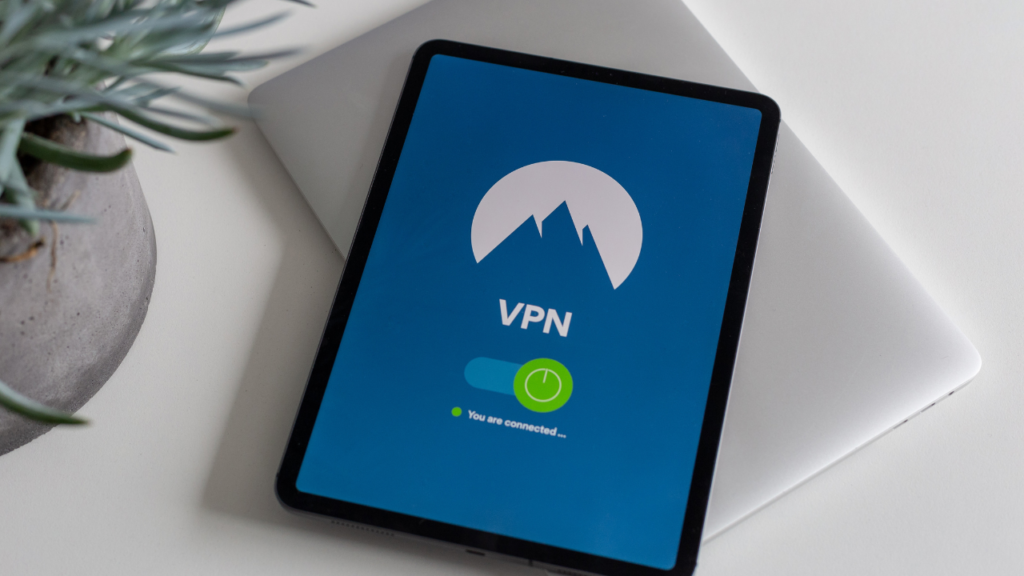Can VPNs Be Tracked? All You Need To Know
DataProt is supported by its audience. When you buy through links on our site, we may earn a commission. This, however, does not influence the evaluations in our reviews. Learn More.
A VPN, or virtual private network, is a service that allows you to connect to the internet through a secure, encrypted connection. This means your data is not visible to your internet service provider or anyone else who may be monitoring your internet traffic.
However, there are some concerns that VPNs may not be as secure as they claim to be. In particular, there is the worry that VPN providers may be keeping logs of their users’ activities. So, can VPNs be tracked?
In this article, we’ll answer exactly that. We will also examine some of the ways in which a VPN can be used to improve your online privacy.
How Does a VPN Hide Your IP address?
When you connect to the internet, your computer is assigned an IP address for routing traffic to and from your device. Your IP address can therefore be used to track your location and online activities.
A VPN hides your IP address by routing your traffic through a VPN server in a different location. This makes it appear as if your traffic is coming from the server instead of your device. As such, your real IP address is hidden from view, making it more difficult for someone to track your activity.
However, does a VPN make you truly anonymous? The answer is no. While your IP address is hidden, your traffic is still routed through a server. This server can be monitored, and your activity tracked. If you want to be truly anonymous, you will need to use a service that does not keep logs of your activity.
Who Can Track You Online?
Although it’s hard to be tracked with a VPN on, certain people or organizations can still find a way to track your activity. These are:
- Government agencies. What’s tricky is that government agencies can approach ISPs and the very VPN that you’re using if they want information about your online activity. In case the person using a VPN is breaking the law, the provider is most likely bound by the law to share the information they have about users’ potentially questionable internet activity.
- Internet service providers. Your ISP will be able to see that you’re using a VPN, but they won’t be able to access specific information such as your browsing history, websites you visit, or content you’re uploading.
- Cybercriminals have many ways of attacking, such as compromising your WiFi and accessing your device, but since the VPN services encrypt your data and your IP, in most cases, the cyberattack is not successful as they cannot decrypt your information.
- Employers. Although you’re using a VPN, your activity can be monitored by your employer. They will be able to track everything you do online as long as you’re using a company device and the VPN your company is paying for.
Now that we’ve learned VPN tracking is possible and listed who can engage in this activity, let’s see which mechanisms they use. Keep in mind that it’s much harder (if not impossible) to access the information of those people who use a reliable VPN.
Tracking Methods
With advanced VPN features, it’s hard for third parties to connect the dots and trace your activity back to you, even if they are website owners, ISPs, and governments. However, you’ll never be completely invisible. Here are the methods to look out for that can help third parties track you online:
- DNS leaks
- Website tracking cookies
- Money trails
- Browser fingerprinting
- VPN logs
DNS Leaks
In situations when users don’t properly configure their VPNs, they can face an IPv6, WebRTC, or a DNS leak. For this reason, make sure to choose a VPN that has its own DNS servers, so you won’t have to worry about this problem.
ISPs log the DNS queries at all times, and if there’s a DNS leak, it is possible to access your browsing history even if you’re using a secure VPN. Similarly, an IPv6 leak prevents your VPN from encrypting the traffic, therefore, it can be monitored.
A WebRTC leak is particularly dangerous if it happens due to a browser issue, which is why your real IP address can be compromised, so your real location and activity can be seen.
VPN Logs
When hackers want to track your VPN connection, the easiest way for them to do it is to take hold of your VPN logs. You should always avoid VPN providers that store all the internet activity of their users and choose no-log VPN providers that don’t record your VPN traffic.
If a government agency with a warrant wants information about you, it can ask a VPN provider to supply such data. However, if that provider never kept any connection logs to begin with, it will have nothing to offer to the authorities.
Website Tracking Cookies
Cookies are text files that can reveal information about your online activity, unique user identifier, and login name, and they’re located on your browser. If you accept cookies from a website that includes advertiser network cookies, you might be exposed to advertisers and websites tracking you online to collect data about you and target their advertising campaigns.
Money Trails
Your financial transactions tell a lot about you. If a third party wants to determine whether or not you’re a VPN user, and they have access to your payment history, they’ll be able to see that you paid for registering for this service.
Browser Fingerprinting
This common method can be used as a way to trace a VPN with fairly high accuracy. While you’re visiting websites, your browser is leaving plenty of information about you and your activity online, such as the version of the OS, browser, and plugins you have installed, as well as the language you’ve selected. However, no personal information will be revealed, as the unique identifier doesn’t point exactly to you.
Can a Free VPN Be Tracked?
To cut straight to the chase, if you’re looking for privacy, don’t use a free VPN. As these providers need to find a way to earn money somehow, they often sell their users’ data to third parties. These VPN providers frequently keep all of your logs and connection data that includes information about your IP address and the websites you visit.
This pretty much means that everything you do online can be accessed by someone else if you decide to use a free VPN, rendering the point of using a VPN useless.
Therefore, it is much better to invest in a proper VPN that is certain to help you remain anonymous. The price you could pay if you go with a free VPN might be a lot higher than if you simply pay for reliable service.
Can You Be Tracked if the VPN Disconnects?
While browsing for a VPN provider, make sure to look for those that come with a kill-switch option, which will immediately take all of your devices offline if your VPN disconnects.
This feature is important because when VPN connections break, the data immediately becomes exposed. As a result, threat actors might use this chance to their advantage and compromise your device or your data.
Can You Be Completely Anonymous?
Regrettably, staying completely untraceable online is impossible. We learned that you could be tracked even when you’re using a VPN.
Still, there are things you can do to improve your online privacy and reveal as little as possible about yourself and your online activity. Here’s what you can do:
- Try not to use Google. There are search engines that don’t store that much of your data and that offer much better privacy.
- Choose your browsers wisely. Make sure to go with a browser that will collect as little data about you as possible.
- Be careful about your posts online. Threats such as malware are not the only danger online – people sometimes willingly disclose personally identifiable information that can be used against them.
- Use a reliable VPN.
Final Thoughts
If you use a proper, reliable VPN service, it will be rather difficult for anyone to track you. However, if you use a free VPN that doesn’t care about your privacy, it will be easy for someone to collect data about you and your online activity. Therefore, we advise you to carefully choose your next VPN provider and avoid the free options. After all, free things often come with a hidden price tag!


